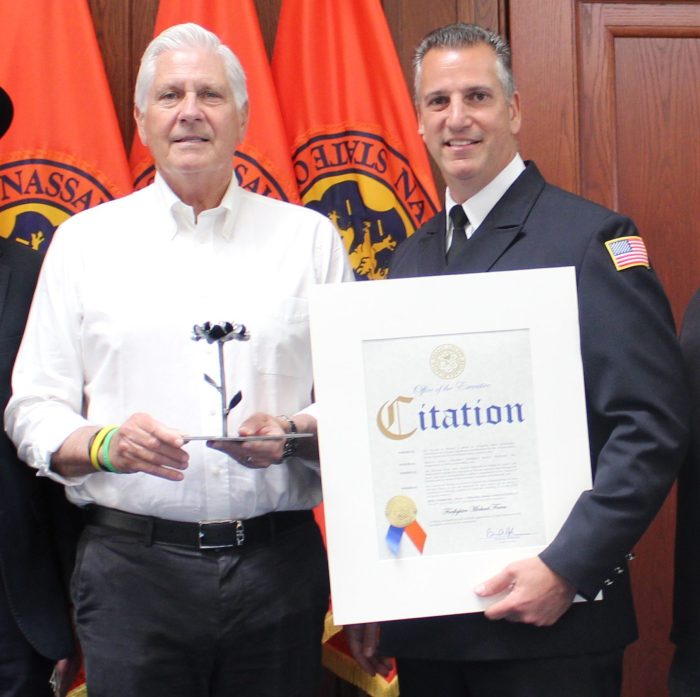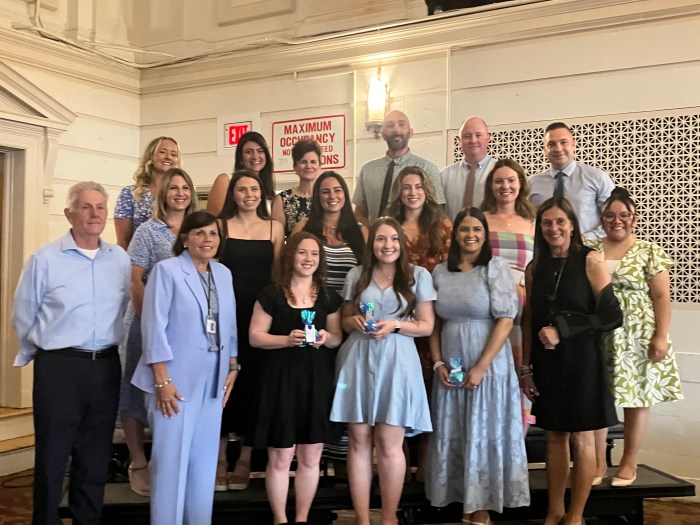The Monsters on Maple Street
What would you say to an individual who was raising the alarm about another large-scale terror threat facing the United States? Would you lend him an ear? What if he were the same individual who spent most of 2001 warning the Bush Administration about an impending al Qaida attack?
I just finished reading Richard Clarke’s (a former counterterrorism adviser to Presidents Bill Clinton and George W. Bush) new book, Cyberwar: The Next Threat to National Security and What to Do About It. Co-authored with Robert Knake; the two hypothesize believable scenarios on how computer hackers could cripple the United States. It is not the kind of reading that inspires holiday cheer since our pipelines, electrical grid, railroads, air traffic and banks are all computerized.
Now it could be argued that I am partial to doomsday scenarios. When Barak Obama was elected president I wrote in a Mayor’s Message that his first priority should be preventing the detonation of a nuclear bomb on American soil. I caught some flak from a couple of constituents in that ancient but venerated section known as Letters to the Editor whereupon I, being a trader at heart, returned the fire with gusto.
Their vexation, in one sense, might be understandable in that local mayors worry about balancing budgets, maintaining services and attending the ceremonial aspects of community life. But they do not, as a rule, worry about a nuclear attack on their village. Of course my larger point was that I never wanted to repeat the awful experience of attending all those funerals for neighbors who lost their lives on 9-11. As a public official, I attended all the funerals and memorial services for those who were lost in Floral Park and keenly felt the sense of loss that pervaded not only the community, but the entire country.
In the counterterrorism business, one needs to be ahead of the curve or the consequences could be unthinkable. But the problem with the unthinkable is that our enemies spend a lot of time thinking about it and so must we if we are to prevent another national tragedy. In order to do that, tough analytical questions must be asked in terms of what threats we face and how best to meet them. This is not to say we are blinded to the cyber threat. The Pentagon has created a four-star general command called Cyber Command to defend military targets. The weakness of our response is not in creating a new military command post capable of conducting a high tech war but in creating safeguards for those cyber viruses that can be surreptitiously and insidiously injected in the bloodstream of our private infrastructures.
These are computer programs that move money, guide trains, keep airplanes in the air and enable our vast financial system to conduct voluminous business transactions in a responsible and organized fashion. To disrupt, much less disable, this infrastructure would be calamitous and it can happen not only suddenly at the hands of terrorists, rogue states and military organizations but also the criminally disgruntled living among us.
Clarke and Knake believe we should look at cyber terrorism as guided missiles and reply by intercepting them and retaliating. This requires not only enormous technological sophistication that is adaptable to the myriad threats that confront us but a Federal Agency exclusively dedicated to defending the nation from such an attack. Clarke and Knake believe that China has not only developed the capacity to attack our computer systems as well as degrade our critical networks but that it has already used computer hackers to engage in widespread penetration of U.S. and European systems, successfully copying and exporting huge volumes of data, disclosing secrets behind everything from pharmaceutical formulas, bioengineering designs and nanotechnologies that control, among other things, military weaponry.
It is no surprise that America makes such an inviting target because no power on earth uses computer networks as extensively as we do. The private sector probably does not have the resources or the knowledge to develop the defensive software necessary since hackers are always devising new ways to jam or obliterate systems. Perhaps a partnership between government and the private sector can be forged to foster and bolster security measures. Questions, however, abound. There is nothing in our complicated world that is ever a zero-sum game and some of these questions strike at the very heart of a free society. Should we allow widespread government intrusion in the private economy? Do we really want government to be the architects of these firewalls, much less have access to the private network of corporate America?
Clarke and Knake do not really answer these questions much less resolve the philosophical dilemmas of adopting such a public policy. Very broadly speaking my own view is that matters of privacy are sacrosanct and should only be compromised in proportion to the threat facing us and only then when oversight is properly authorized. If you live and work in New York City, you are almost always under surveillance. I find this Orwellian aspect of contemporary society uncomfortable but necessary in the world we live in.
Because of the potential for catastrophe, I also feel we need to take extra, if not extraordinary, precautions against computer-based terrorist attacks. To point out our ever-growing dependence on machines would hardly be a novel observation, but we need to be reminded of it. Exactly 50 years ago, one of my favorite television programs, the Twilight Zone, (I became a fan by obsessively watching those crazy holiday marathons) aired an episode called the The Monsters are Due on Maple Street. Maple Street is the kind of neighborly community one would find on suburban Long Island. Then one day the power that gives life to our machines is either shut off or goes haywire.
Slowly but surely the sanity of the people on Maple Street, models of middle class respectability, unravels. Neighbors become a mob; chaos ensues as accusations and threats take the place of polite conversation leading to the sound of shattering glass and gunshots echoing in the night. The film then abruptly cuts away to a nearby hilltop where two shadowy, alien observers look down at the melee on Maple Street while using a device to manipulate the neighborhood’s power. Casually, they comment on how easy it is to rent the fabric of civilization by the turning of a switch. The monsters on Maple Street turned out to be the people who lived there, meaning all of us.
The term cyberspace has a Twilight Zone feel and today’s enemy is more likely behind a computer screen than looking down at us from a hilltop. In that fictional episode the aliens knew our mighty nation’s Achilles heel — unfortunately, in real life, so do others.































